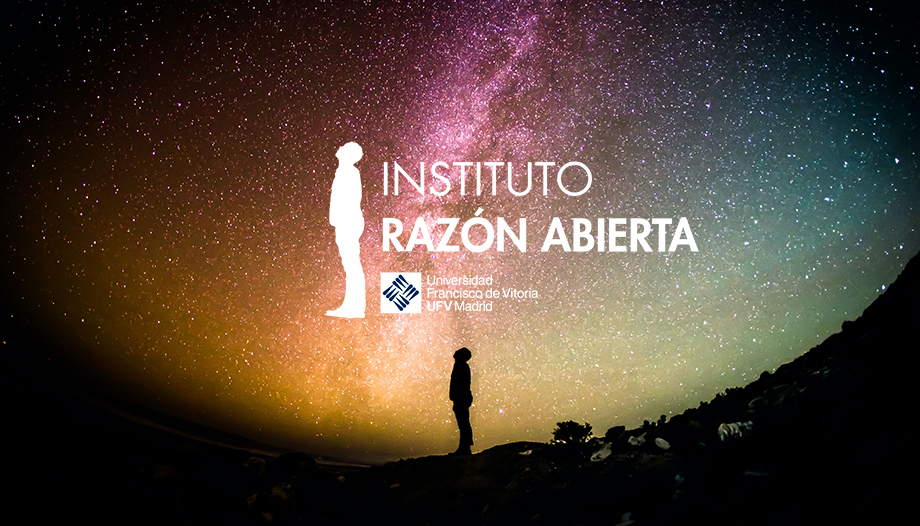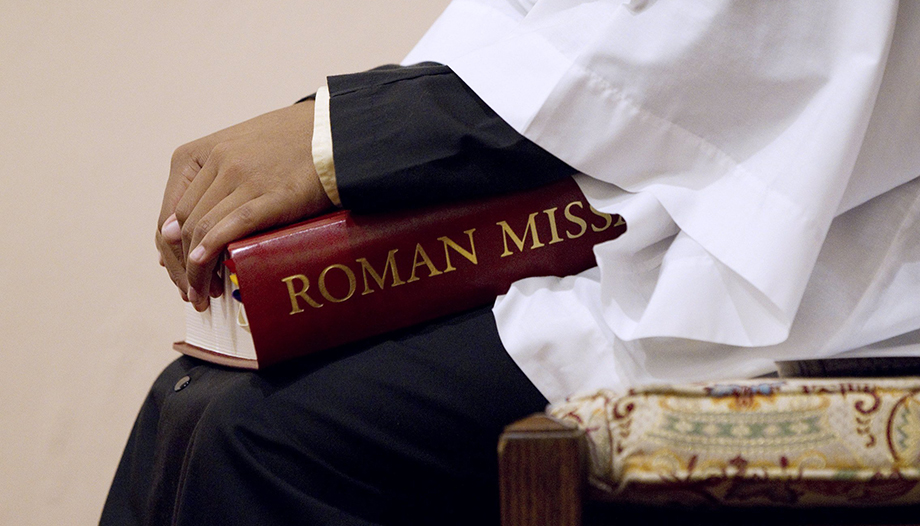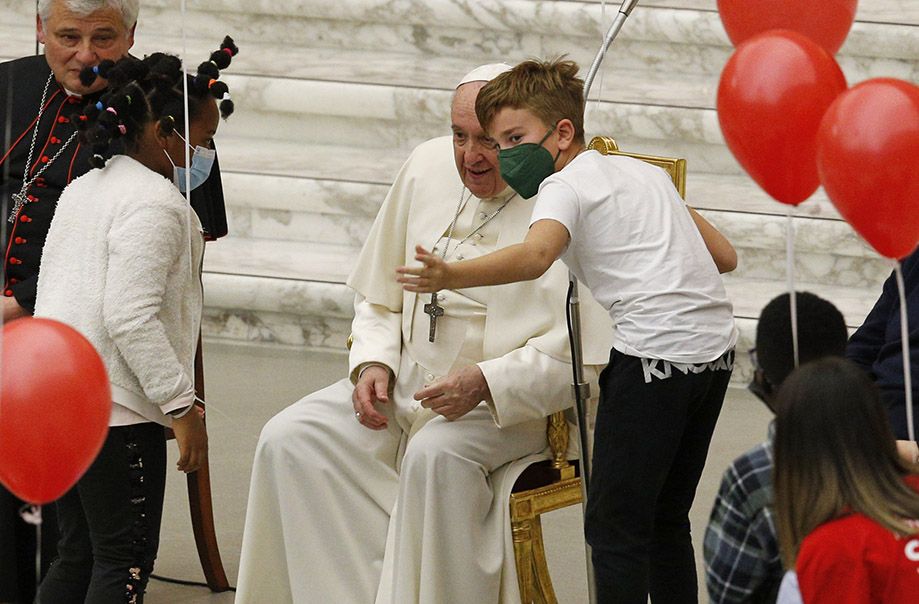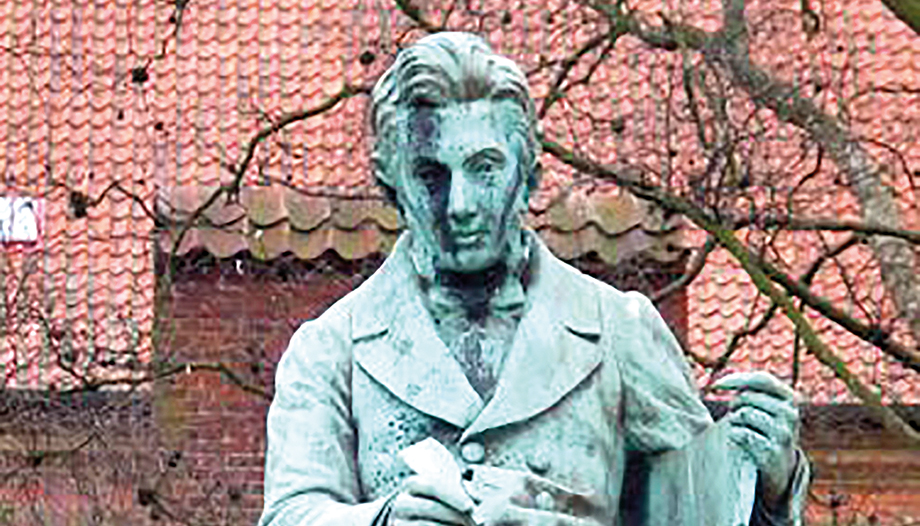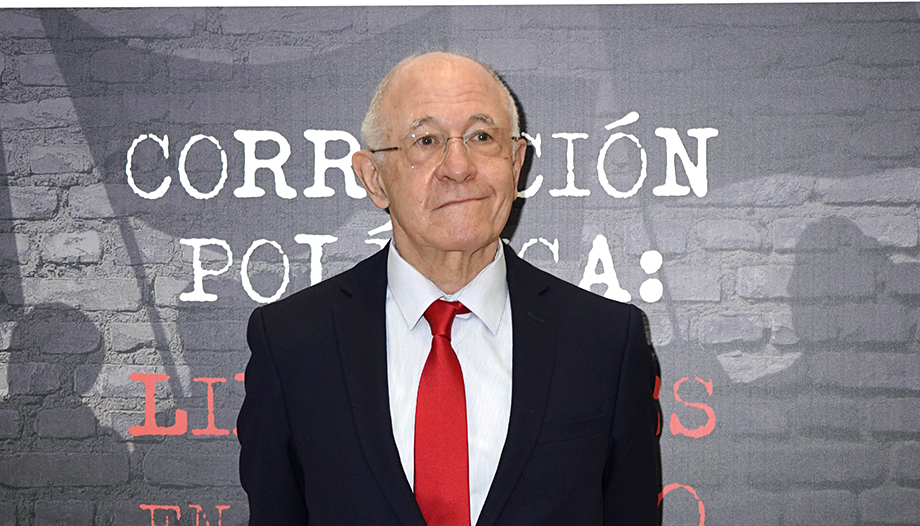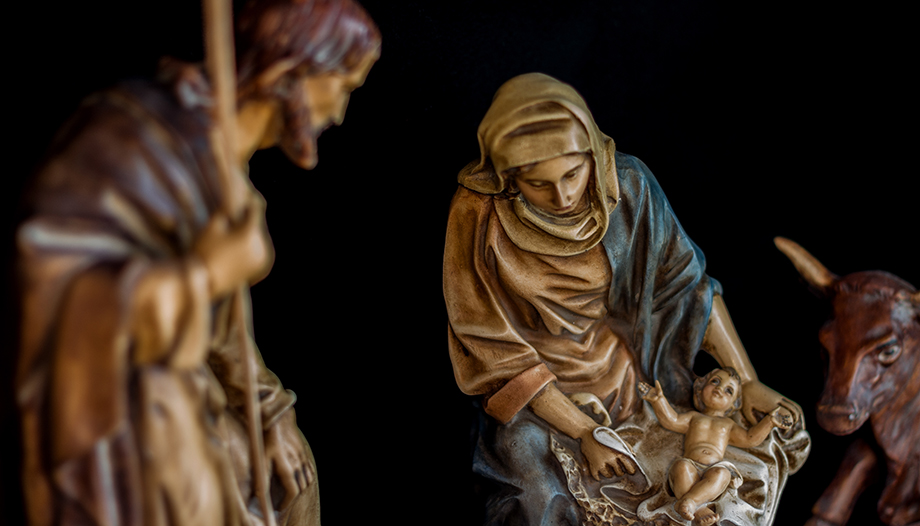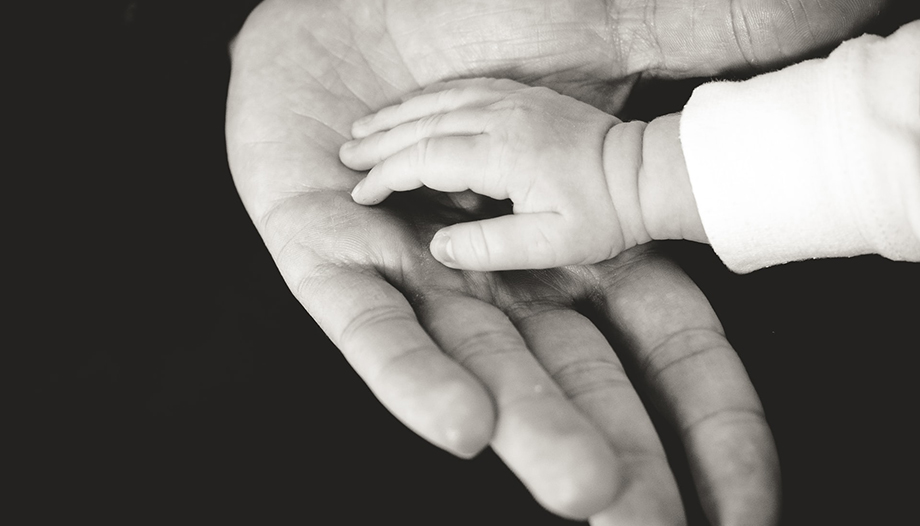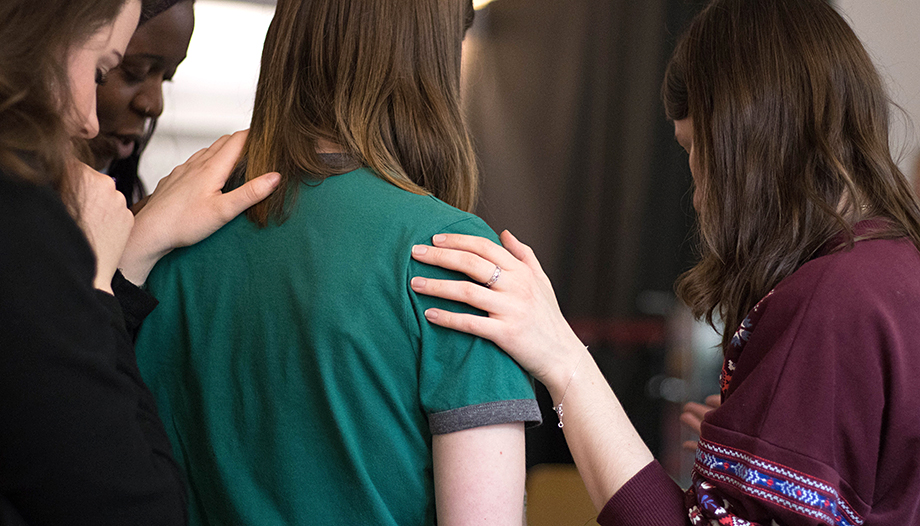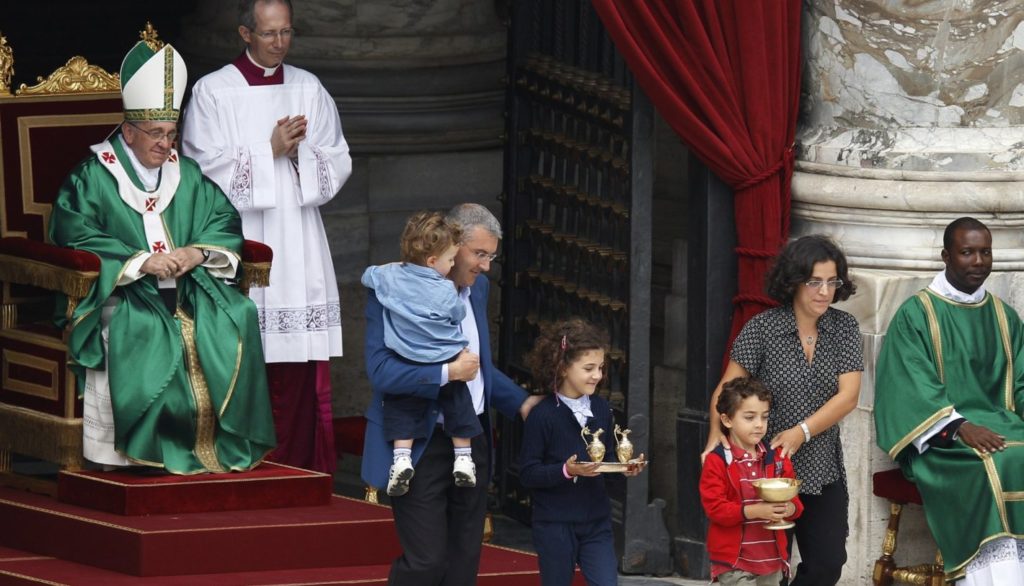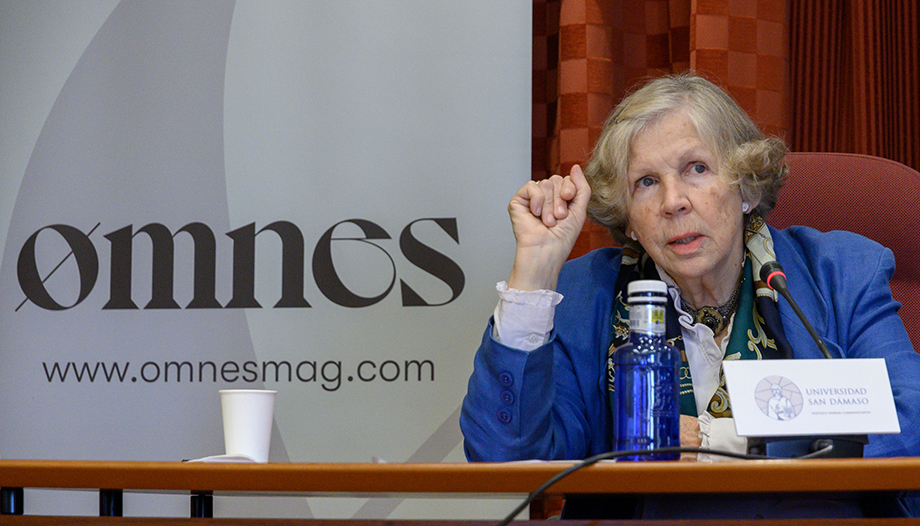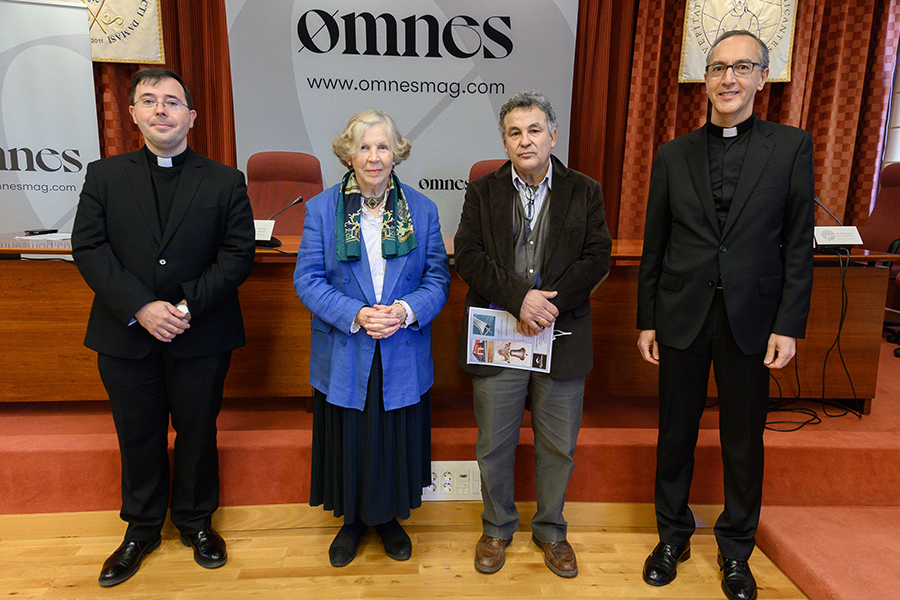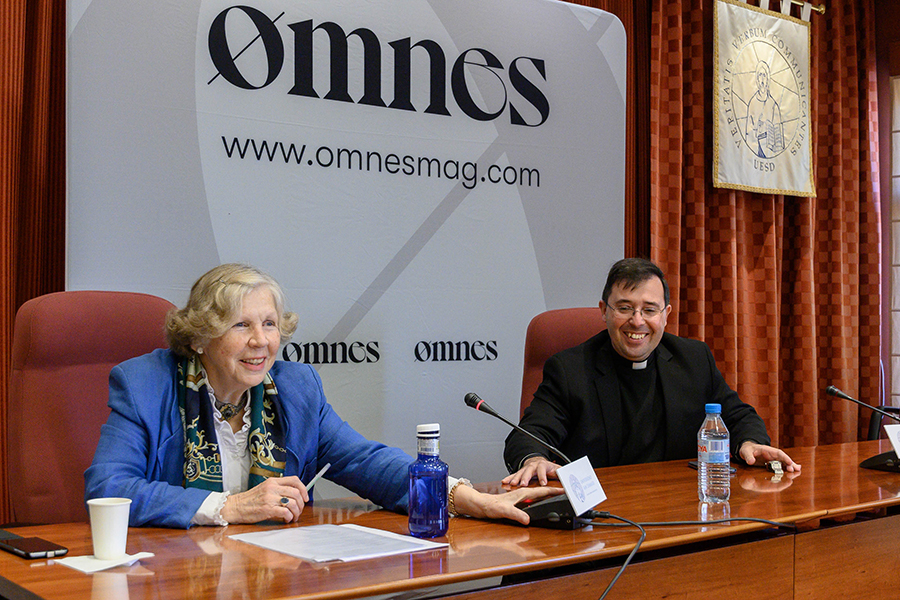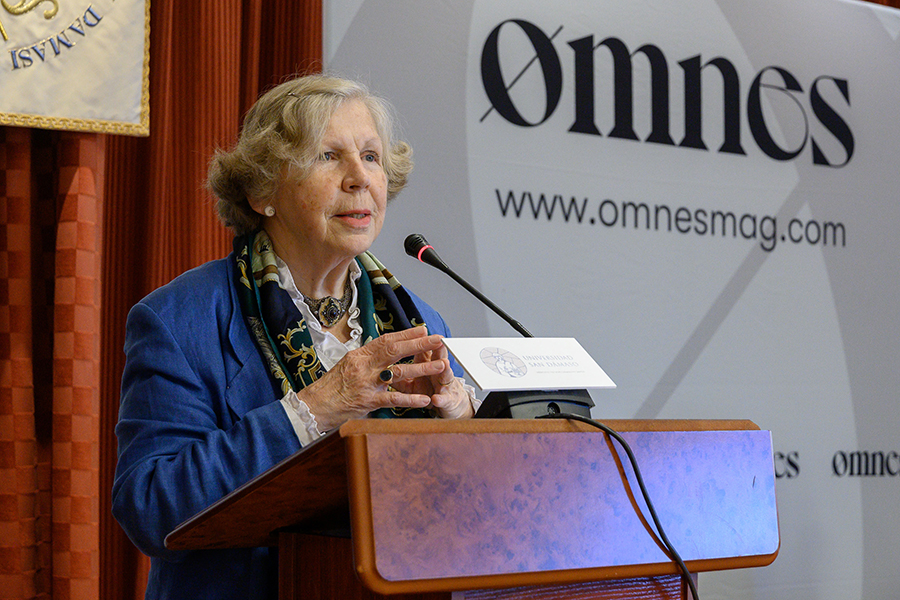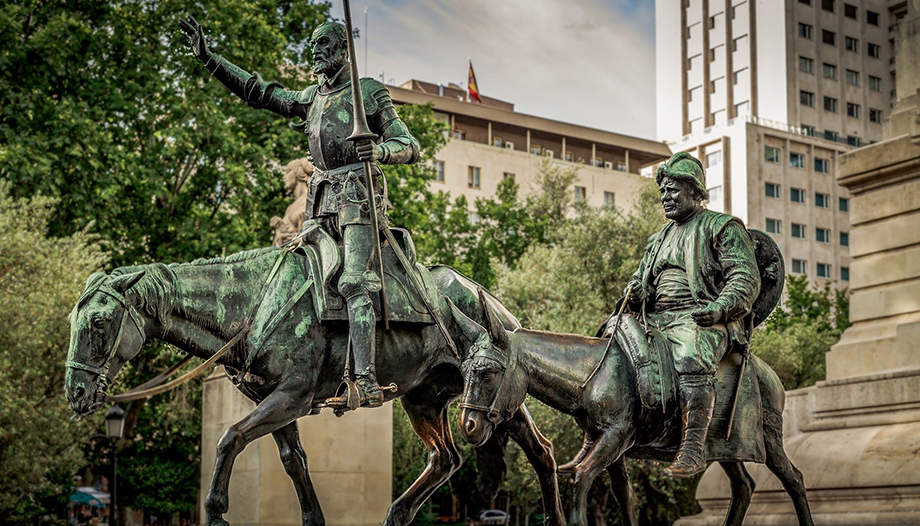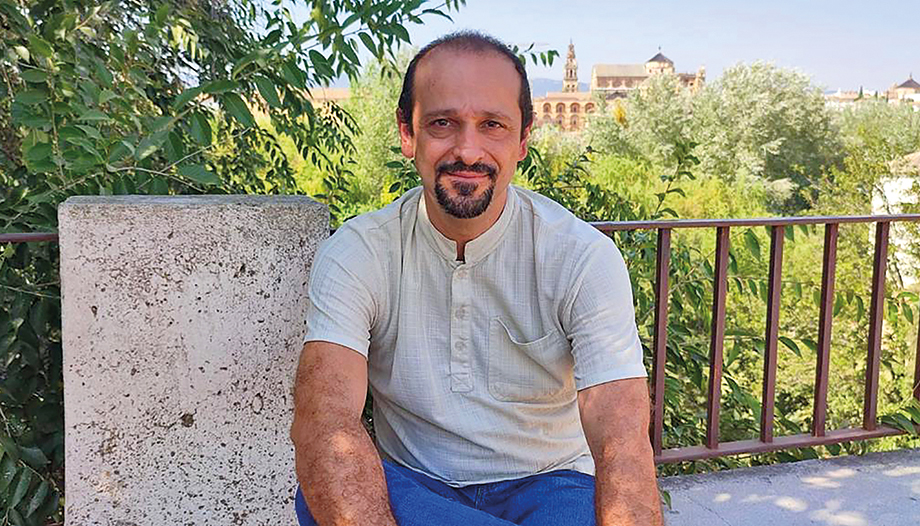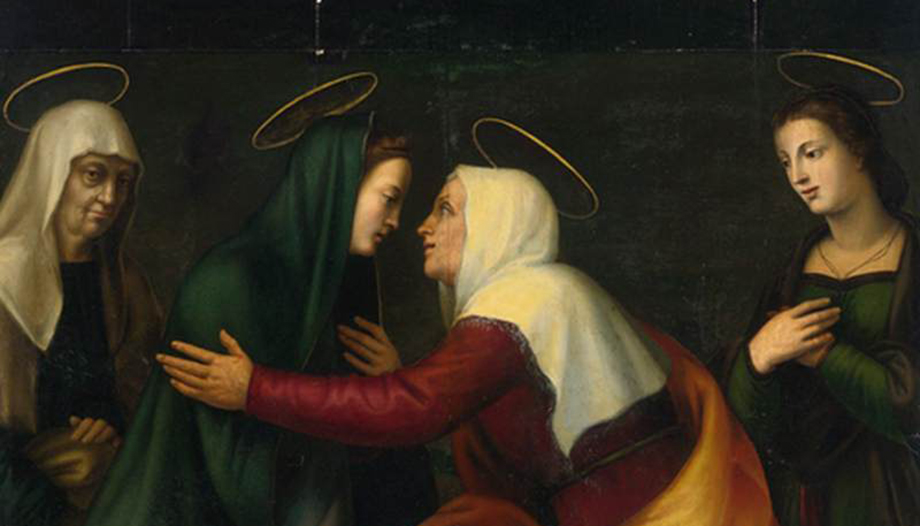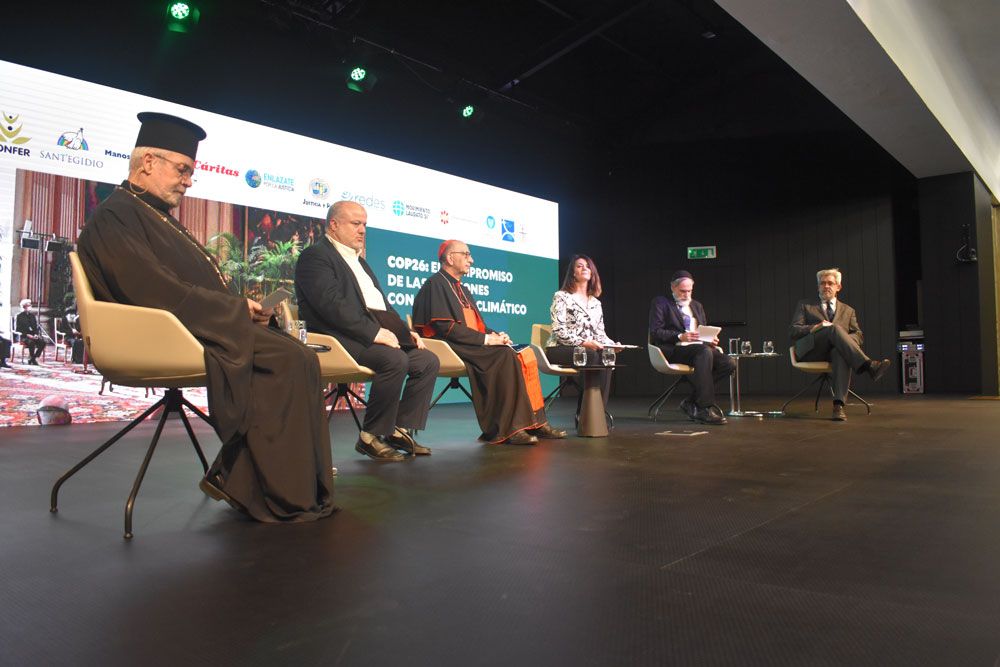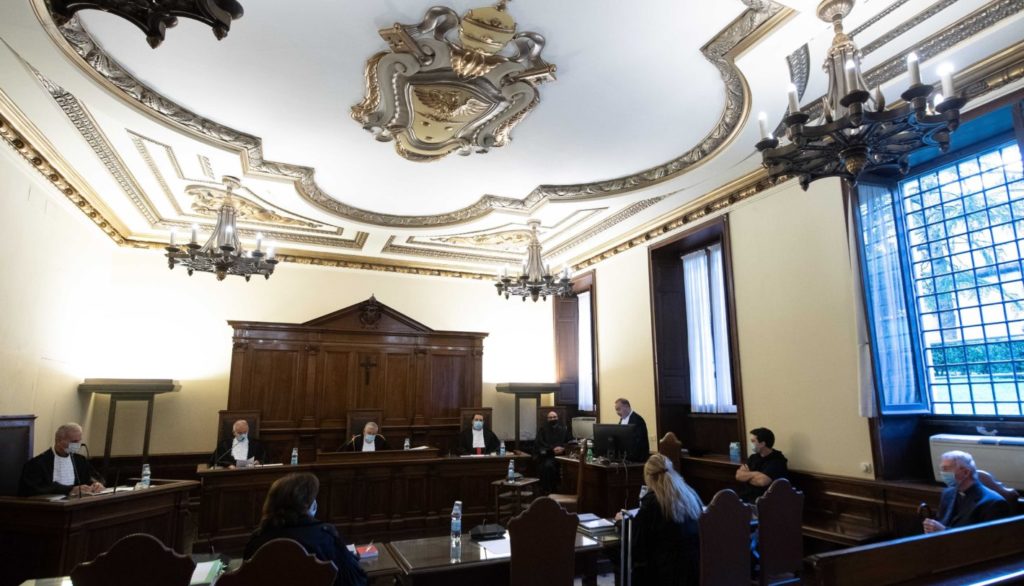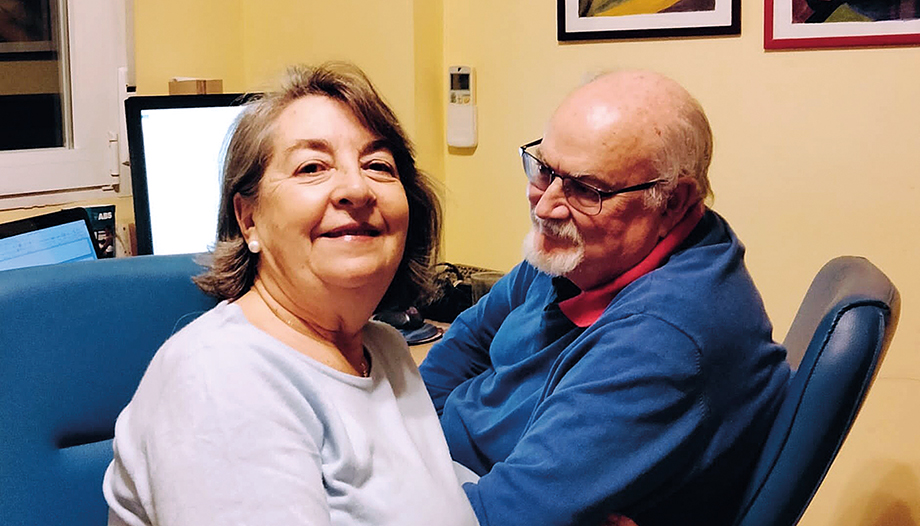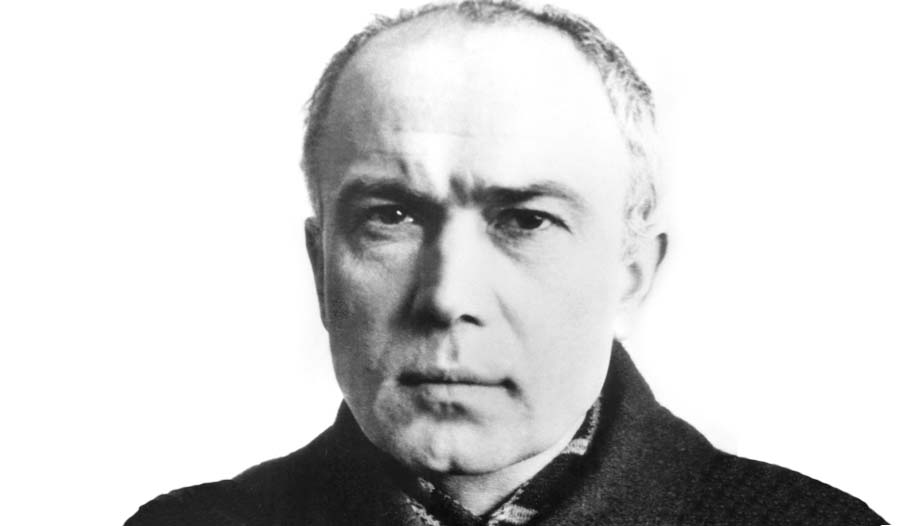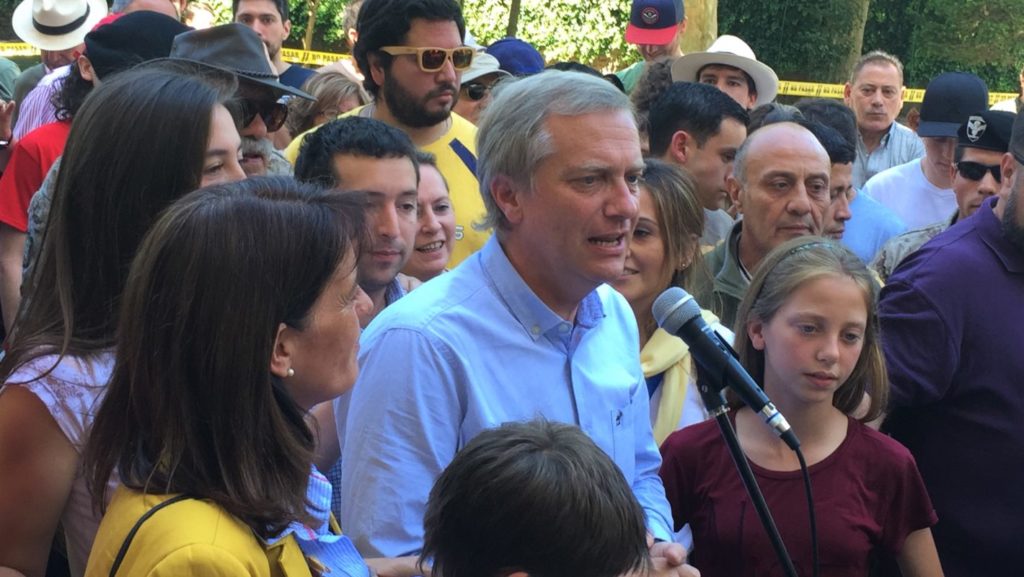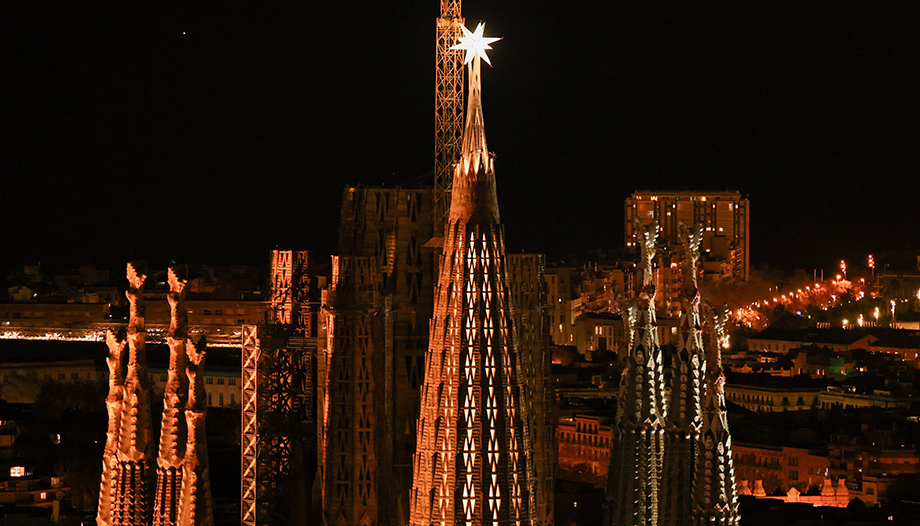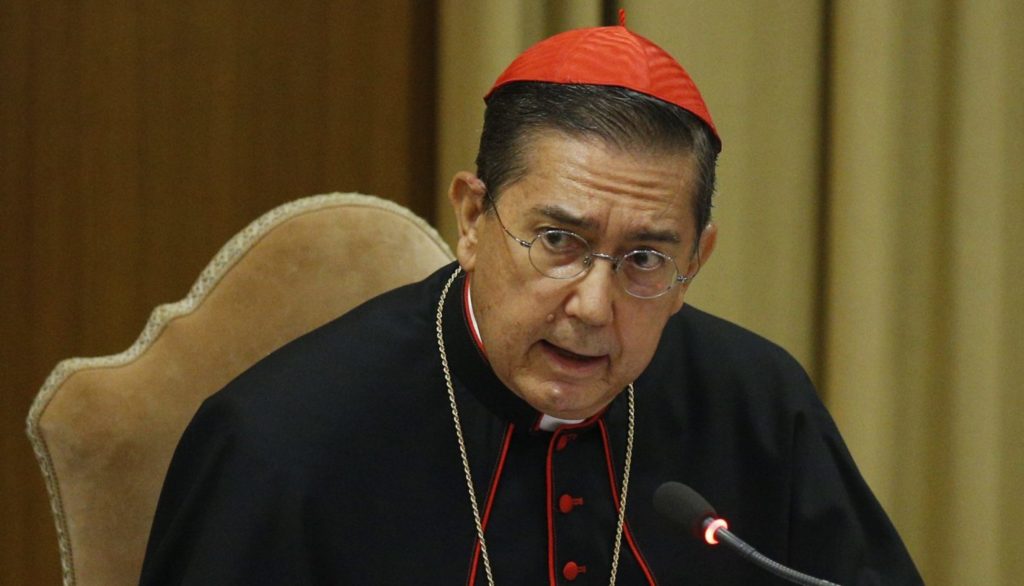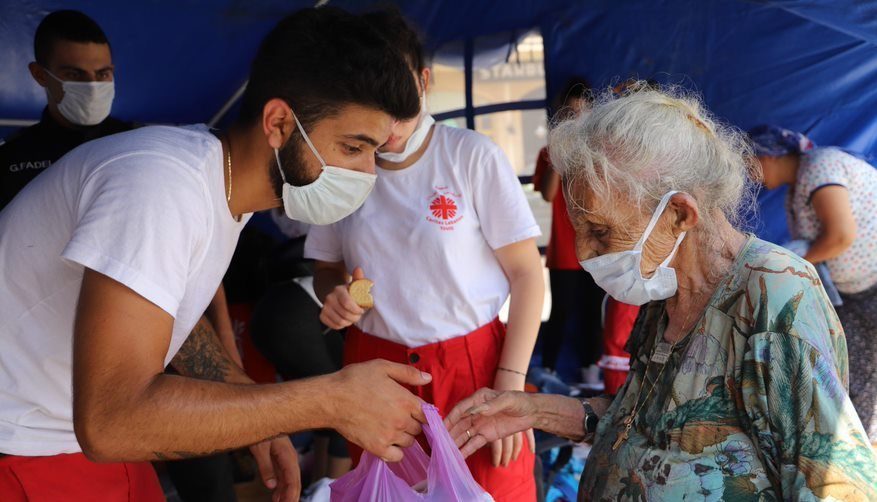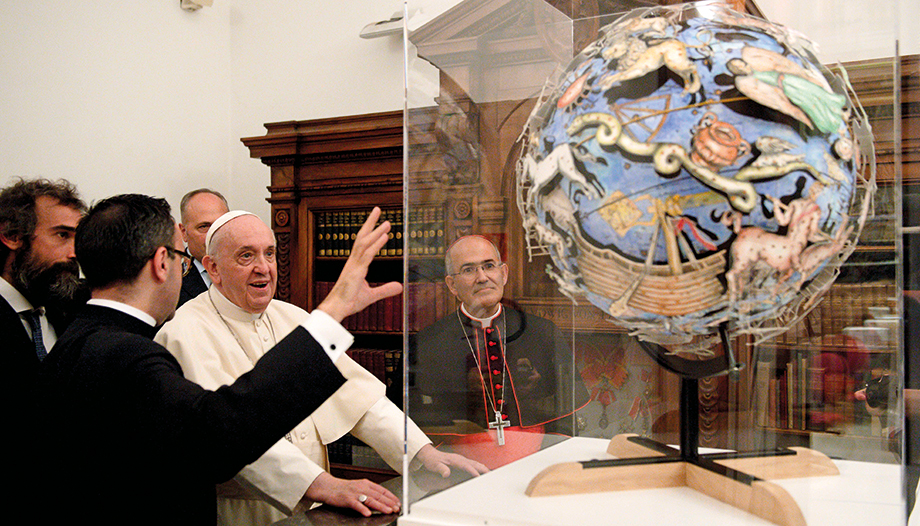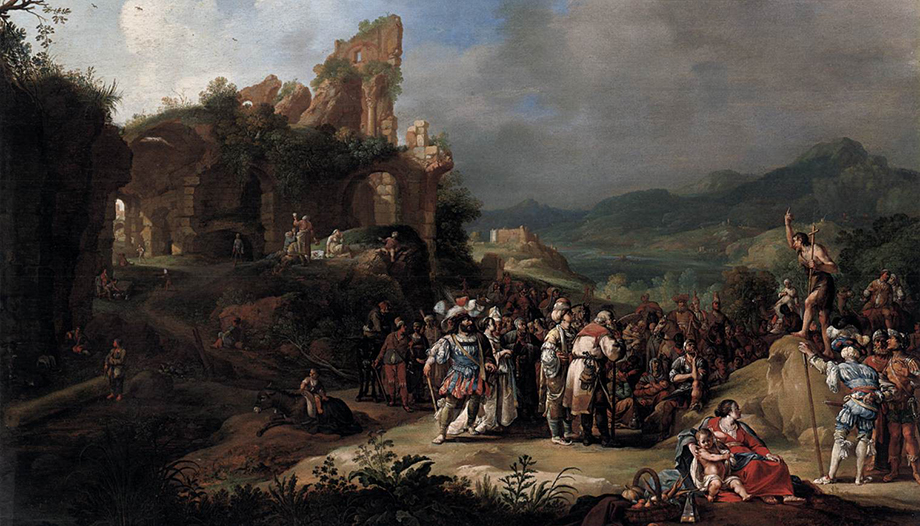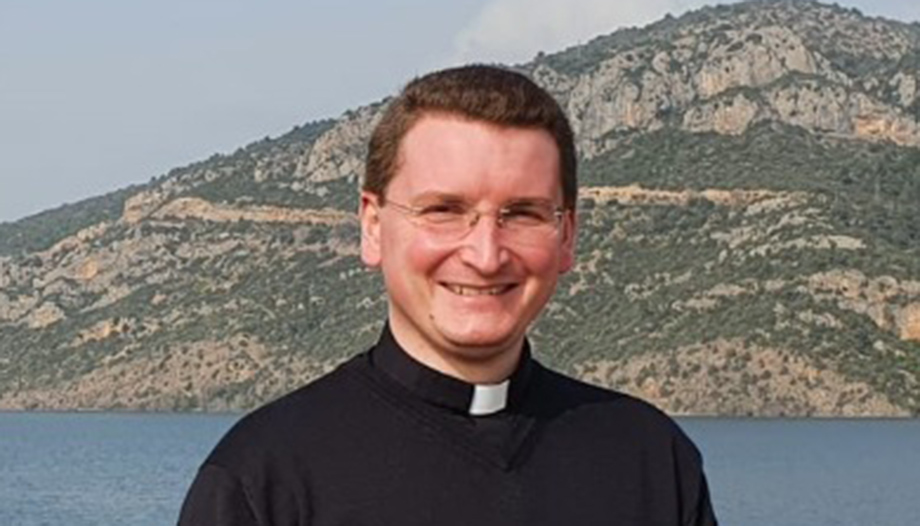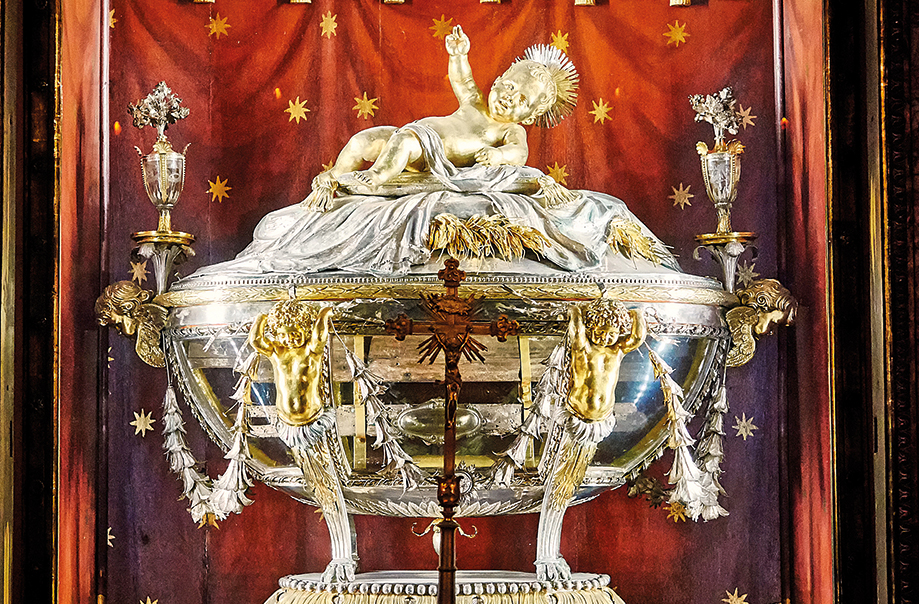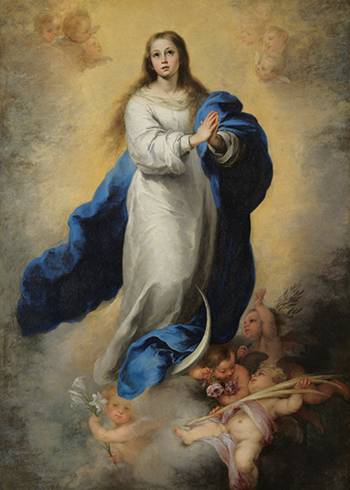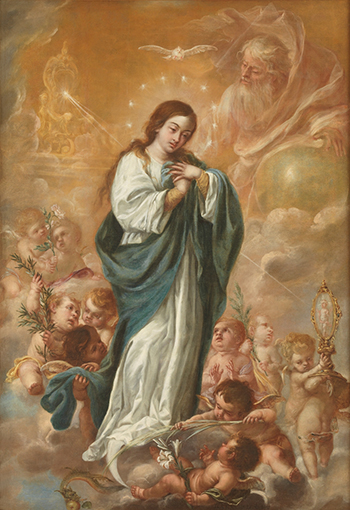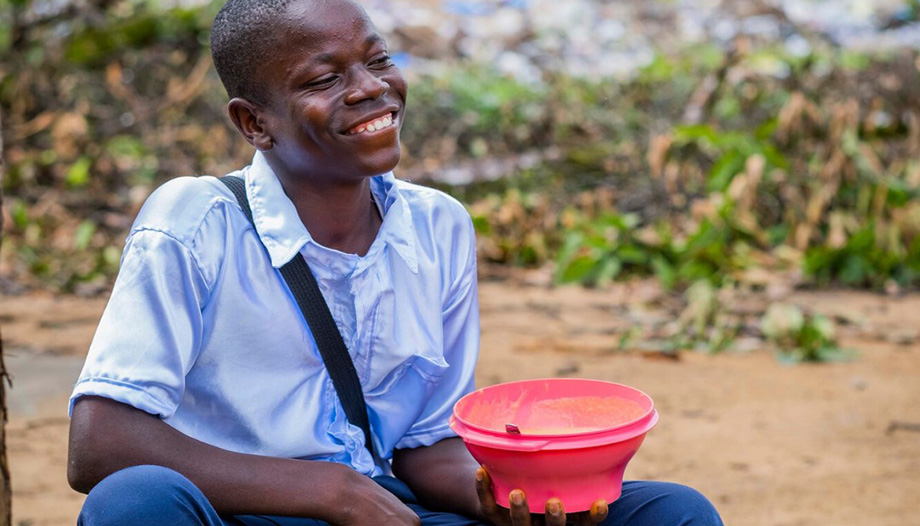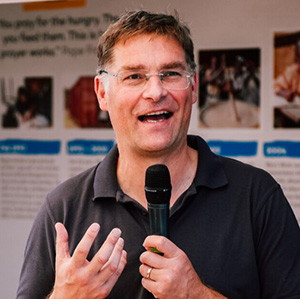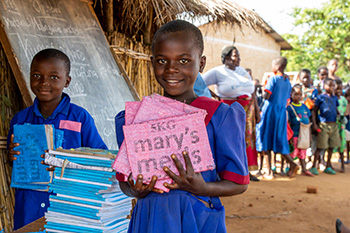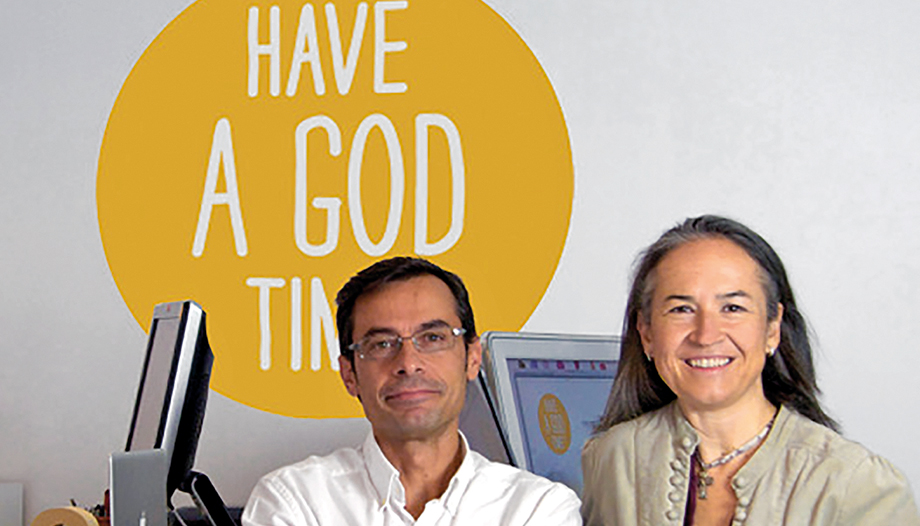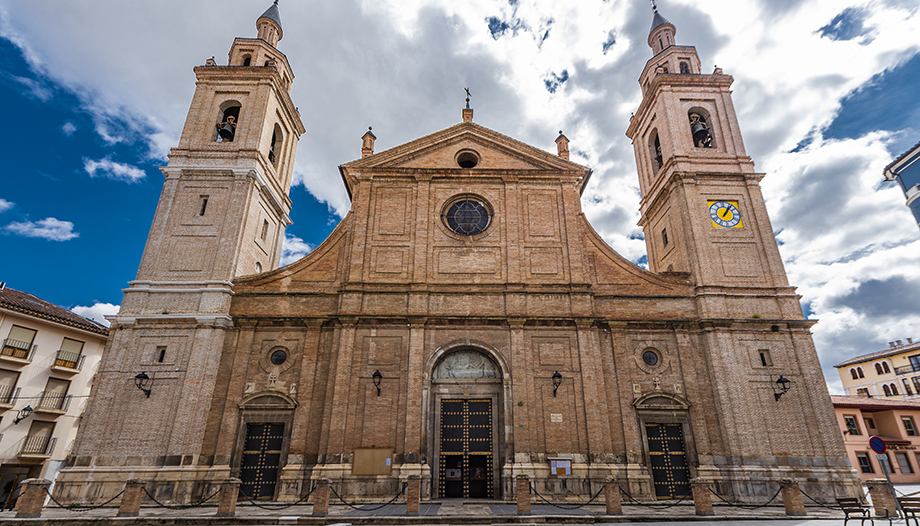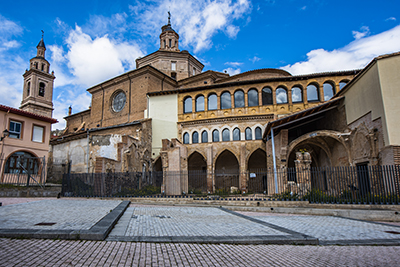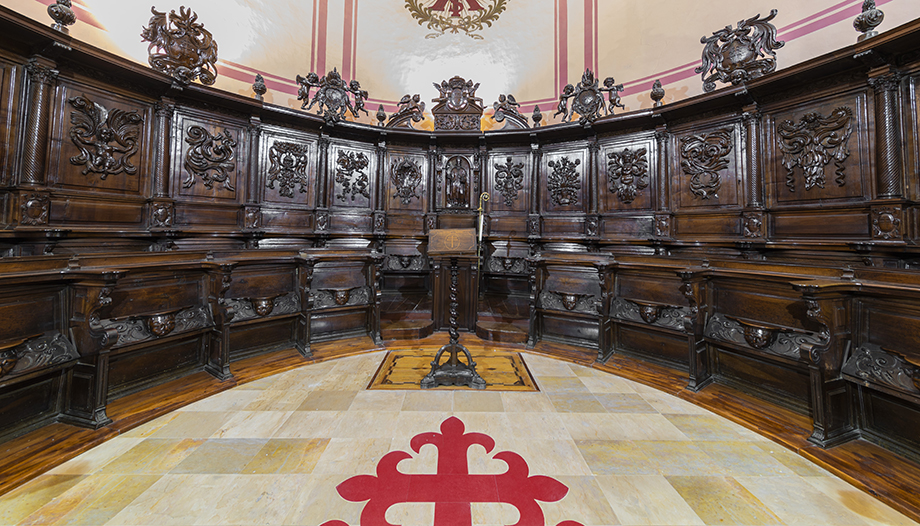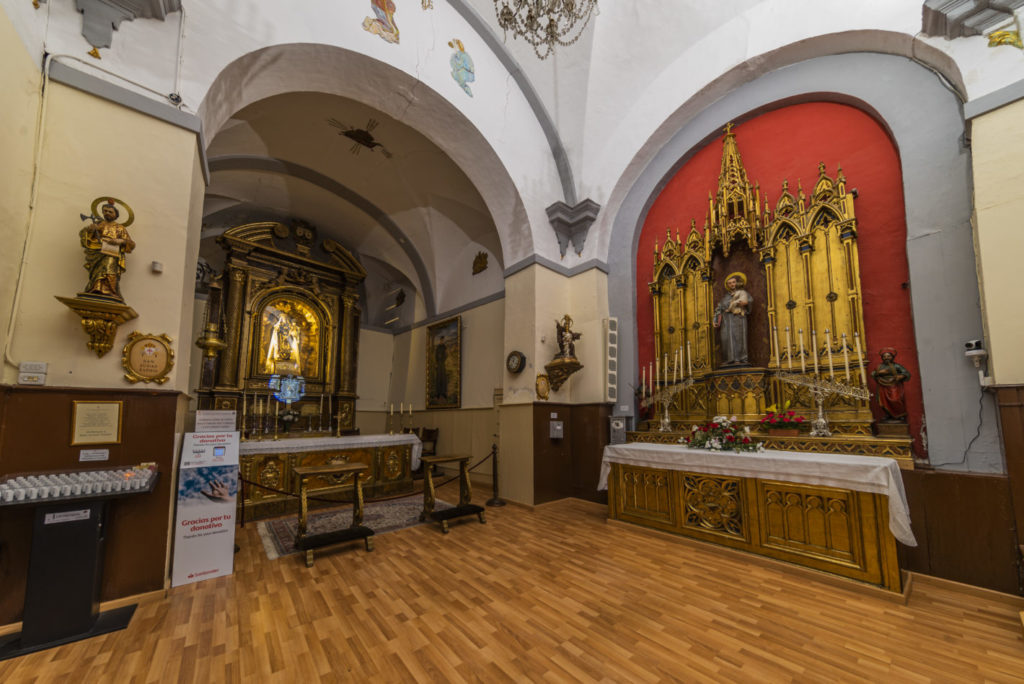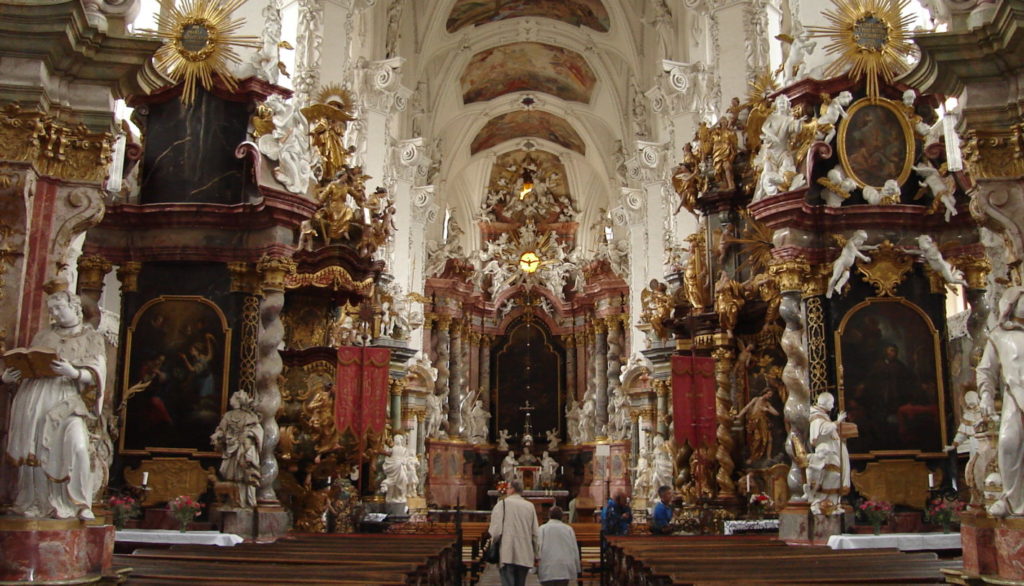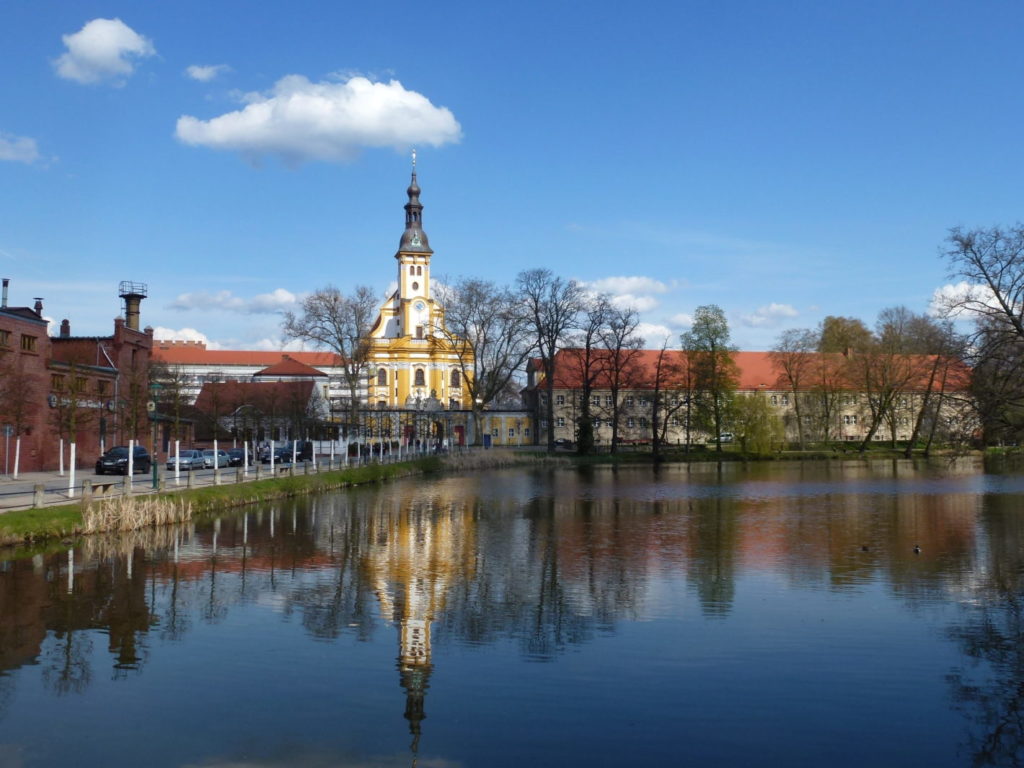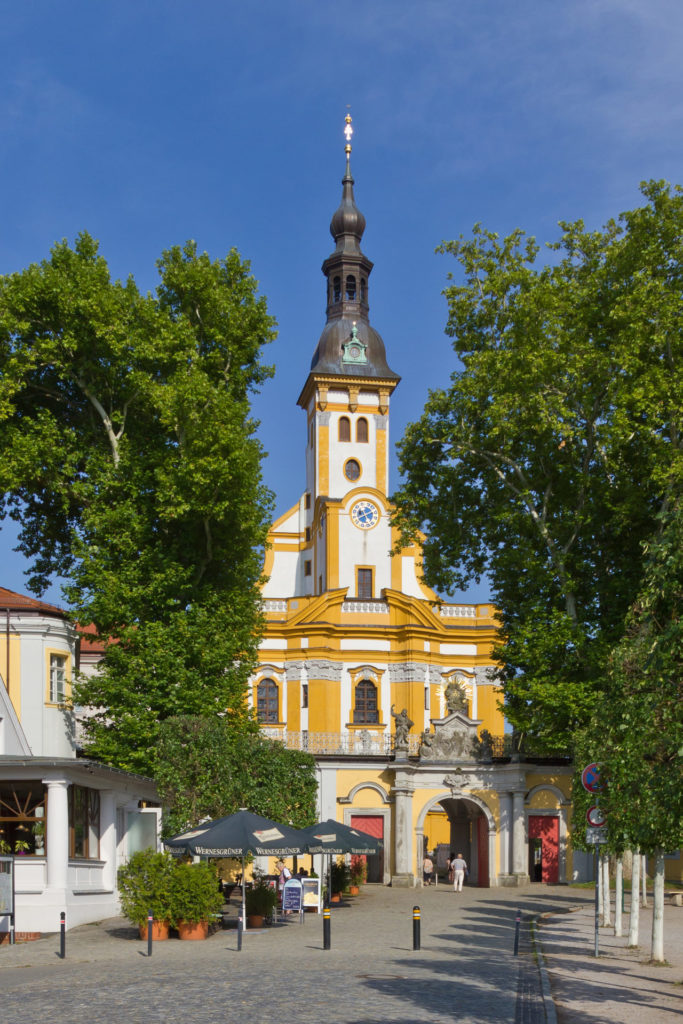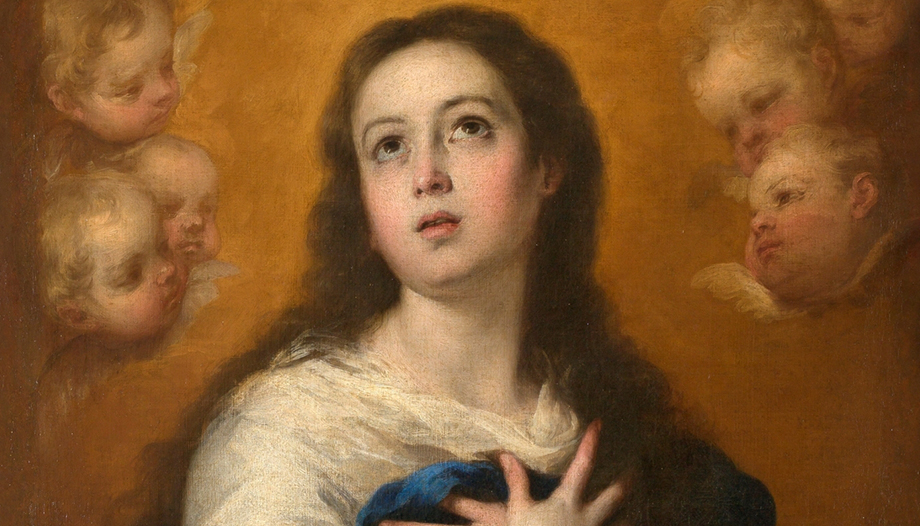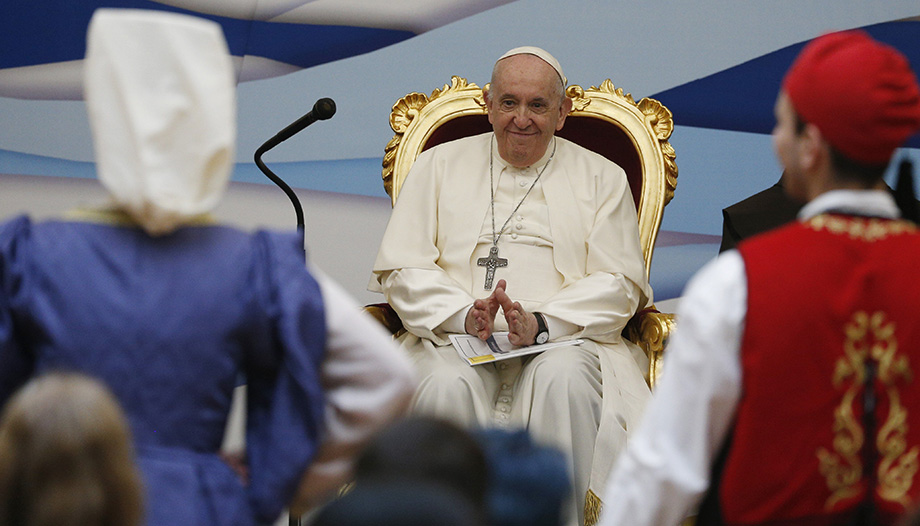The new man without nature?
Body. Love. What could be more beautiful? And yet, precisely around these ideas "there are terrible wars over (small) questions of theology, earthquakes of heat [...]. It is only a question of trifles, but a trifle is everything when the whole rests in the balance. If one idea is weakened, the other becomes powerful at once" (Chesterton).
What ideas are we talking about? Is man a chameleon who can replace himself? In older language he is called a "stranger", who does not really get to know himself properly. He does not even know his body.
Recently, in Germany, after the Synodal Way, a cardinal (a word that means "hinge") pronounced this way at the beginning of October 2021: the affirmations on the human being belong to the "dispositional mass" of Christianity, because they are not "de fide definita", defined in terms of faith, but changeable. So, are we facing a new ethics?
Ethics comes from ethosIs it necessary to mark again the fence that we had around sexuality? The surprising statements on sexuality at Forum IV (of the Synodal Path in Germany) simply want to open the fence; in fact, anyone could mark it. Do we still need it? This "new" sexual ethic was greeted with joy by two other speakers, one of whom was a bishop; at last the step had been taken: in love, it is not only the person with his or her individual freedom that matters. Nature - that is, the body, sex, the received disposition - are, at best, propositions that can be discussed or modified. Does that mean that the body is only the raw material for my will? It is surprising: nature and bio-ecology are on everyone's lips these days; they must be protected, they must be nurtured, but in no case can they be modified by man. Genetic engineering? No, thank you, but should we assume that nature has nothing more to say? So, an a-corporeal love? An a-natural love? No, you will hear at once: it is not what we meant. But what, then? Let us see the spectacle of errors and confusions.
Caution: "The obcecation of the mind is the first-born daughter of lust," says Thomas Aquinas. The supposedly revolutionary idea is an obcecation: the separation between nature and person. It is by no means very new or postmodern; on the contrary, it has been formulated long ago. Its deviations are also visible, and have also been criticized for a long time. And they are contradictory.
A man of pure freedom?
"The nature of man is to have no nature." The famous Oratio de hominis dignitate (1486) by Pico della Mirandola dates from just over 600 years ago: God himself gives the freedom of total self-determination to Adam (who, by the way, appears without Eve). While all creatures carry within themselves their own reality as divine law, man is the only one created without law. Placed at the center of the world, Adam has unconditional power over himself and all other co-created beings. Still undaunted, he formulates this as a doing, a having, a submitting creation as a whole to the ordination of the one master creature. In accordance with the commission received, he assumes omnipotence as a "second God". This "God clothed in human flesh"[1] becomes its own creator.
In any case, Pico's design of man's (= masculine man's) freedom does not consider the reverse side of such an attribution of power; it remains entirely naive.
It is of course surprising that, conversely, despite the frenzy of freedom, man has been cornered by natural science and technology.
On the other hand: nature as a machine? The "measured man".
The power asserted was first extended to external nature ("fabrica mundi"), to spatial, material things, subjected to the newly discovered regularities, in order to "make us masters and lords of nature".[2]. Today we struggle with the consequences.
From this "knowledge of domination" a second possibility quickly emerged: also the "external" side of the human being was calculated with the methods acquired, in a plastic and still "innocent" way, by means of the "measured" man of Leonardo and Dürer, in whose body the measures of the golden number are inscribed.[3]. In the triumphal procession of geometrical-mathematical thought, the body, as "res extensa", is finally compared to the system of a machine: "l'homme machine" by La Mettrie (1748). The human machine lacked only human eyes, as in Coppelia, E.T.A. Hoffmann's human doll. Here, too, we are dealing with the consequences: transhumanism, the mixture of human and robot. Freedom comes to mean allowing ourselves to be equipped with chips and spare parts.
Indeed, for about 500 years, the Modern Age has conceived nature as a kind of mechanical workshop, and man also functions as a natural machine among other natural machines. Neurobiology, the most recent discipline, reinforces in some of its representatives a very simple affirmation: thought is nothing more than the interconnection of brain synapses. The objection that, if everything is determined, this applies above all to the researcher himself does not even bother. Something similar happens with the statement of a Nobel Prize winner in chemistry, who affirmed that man is nothing more than chemistry. With this, freedom would have been completely abdicated.
On the contrary, freedom triumphs again in reverse: in rebellion against one's own sex. With a distorted image of nature corresponds a distorted image of freedom.
Freedom: the denaturalized man
Since Judith Butler's "Gender Trouble" in 1990, culture has been pointing to a surprising extreme: the transformation to the point of dissolution of the body in cyberspace, in virtual or even real medical-technical space. The very difference (in German) between "Leib" and "Körper" can serve as a thread in this tension, since both German terms refer to a different perception of the self. Thus, "body (Körper)" is predominantly understood as a quantitative-mechanical coating, whereas "body (Leib)" indicates the already animated, living body. The "bodies (Körper)" we can modify them, work on them, even exchange their parts; that is, they can become independent of their previously given "nature"; "My body is my art". The "body (Körper)" becomes a place of protest against a non-autonomously constructed identity. The utopias of fluid identity refer to the total self-design of the "I".
Also sexual life is "staged"; the self wears the respective sex mask, with the result that "this mask harbors no self" (Benhabib, 1993, 15). What is worn is gender nauting, the navigating between the sexes. Man is his own software, rooted beyond body and sex. In this direction points the gender debate: it makes the biological sex ("sex") disappear in the attributed sex (cultural, social, historical - the "gender"). Instead of determination by nature, a voluntary self-choice is offered: is woman already woman, or who "makes" woman, woman, and man, man? Without resistance, without will, the body offers itself as a "pre-sexual body". The "I" does not know incarnation.
Now, we need to find a common thread through these contradictions. It is this: there is no separation between nature, culture and person. More simply: there is no separation between body and sex, between love and duration, between pleasure and children.
Hence the need for a critique of nature cut in half, reduced to mechanics, but also of culture cut in half, read in terms of pure constructivity.
Man is, in reality, anchored elsewhere: in the direction of the divine. Human nature, and even more so culture, lives "towards". The greatness of nature ("natura") consists in the fact that it is actually called "nascitura": that which wants to be born. And it is nature that seeks the free participation of man in his "towards"; it seeks that he affirms and realizes his orientation. The creature has been created towards the origin, it carries its sign, its home is where it comes from.
This can already be read in the engine of sex. It is the loss of oneself in the other, it is the grammar of love made flesh. The body is gift, sex is gift, it is reason and origin (in German "Ur-Sprung", the primary leap) of that which cannot be done by us, of the passion of being man, of the enormous impulse towards self-giving. Enriched by the duality of man and woman, and impoverished by it; not sufficient ourselves, dependent on the attention of the other, expecting from the other the redemption that comes from the realm of the divine and in its highest and most fruitful form leads back there (Gen 1:27ff). What in Greek thought is a "deficiency," the lack of unity, in biblical thought becomes the joy of duality.
Sex ("Geschlecht") can also be understood, from its literal sense, as "being sacrificed" (in German "Geschlachtetsein") or as "being in half" ("Hälftigsein"). The brutality of the sex-only, of the "river-god of blood [...] ah, oozing the unrecognizable" (Rilke, 1980, 449) must, therefore, be humanized. It is difficult to think the body without a suggestive and different Other. But neither "nature" (biology) nor "culture" (self-design) is "healed" by itself. Therefore, it is crucial to know the divine horizon, to know the guidelines that come from it. Only then can one "act ethically," that is, "freely correspond to the order of being" (Thomas Aquinas).
Tension between nature and culture
The idea of man's self-determination is not in itself wrong, nor morally evil. It is based on the strange fact - as remarkable as it is dangerous - that man does indeed occupy a special position among other living beings, also with regard to his sex. The positive side: although he does not have the stimulus-response security of an animal, he does have freedom from instinct and thus freedom towards the world and towards himself; and also the full risk of endangering others and himself. At the same time, freedom constitutes the creative flank, to shape the world and the human being. The human being is a reality full of tensions, stretched between the given "nature" and the opposite extreme of change, becoming, future, "culture". "Be in who you are," was the formula of the Orphic saying; but what sounds so simple is a lifelong adventure. Adventure, because there is neither a "coined" nature nor an arbitrary "culture," but both are in a living relationship with each other: between the limit of form (the "happiness of form") and culture ("the happiness of the new being").
An animal has its sex, and does not have to shape it; hence its sexuality, naturally assured, is free of modesty and, from the functional point of view, clearly oriented towards offspring. A human being is and has his sexuality, and must shape it: it is not simply naturally assured, but culturally determined and imbued with modesty due to the possibility of failure; moreover, it is not necessarily linked to offspring. In sexuality a space opens up to achievement and failure, on the basis of the inescapable tension between the drive (of natural need) and the self (of freedom). Incarnation in one's own body, its adaptation to one's own body, "hospitality" (hospitalité, Levinas) towards the other sex, are the key words. It does not indicate rebellion, neutralization, leveling or "contempt" of the received disposition.
Therefore, the duality of sex is not only accessible to a cultural processing, but even points towards it. But sexuality must be cultivated, but as a datum of nature (what else could it be shaped?). Cultivating means neither submitting to it nor eliminating it. Both can be demonstrated by the two different aims of sexuality: erotic fulfillment in the other and generative fulfillment in the son, for which, in any case, two different sexes must be presupposed. The child belongs to the erotic justification of the human being (cf. Fellmann, 2005). And again, the child itself is not something neutral either, but enters into dual existence as a "culmination" of the act of love itself.
Thus, nature = nascitura, opens itself to freedom
Instead of a distorted nature, therefore, nature is a datum and at the same time means "nascitura": a becoming, an unfolding of the given disposition. The current mechanization of nature is far behind, and so is construction.
"With the denial of nature in man not only does the telos of life itself become confused and opaque. The moment man abandons the consciousness of himself as nature, all the goals for which he keeps himself alive become empty [...]"[4].
"What modernity calls nature is ultimately a half-reality. What it calls culture is something demonic and torn, for all its grandeur, in which meaning is always paired with meaninglessness; creation with destruction; fecundity with death; the noble with the petty. And a whole technique of overlooking, concealing and blinding has had to be developed so that man can bear the lie and the dread of this situation."[5].
So let us abandon the lie.
What is the person? Something double
Persona means something twofold: subsisting in oneself, and transcending oneself in some direction. "Persona' means that, ultimately, I cannot be possessed in my selfhood by any other instance, but that I belong to myself [...], I am my own end" (Guardini, 1939, 94). This subsisting in oneself emphasizes that I belong to myself in an original and not derived way.
Now then, to be a person is not a flat possession of oneself. Augustine spoke of a self-possession, of an "anima in se curvata," which collapses in on itself.[6]. Rather, it happens that I awaken in the encounter with another Self, which also belongs to itself and, nevertheless, comes to me.
Only in the encounter is the preservation of the self, the actualization of the self, especially in love. "He who loves is always in transit towards freedom, towards freedom from his authentic bondage, that is, from himself" (Guardini, 1939, 99) Therefore, self-belonging through the other acquires a decisive, even fateful, dynamic. It results from the constitutive tension that goes from the I to the you: in transcending, in giving oneself to share, also in corporeality, and also in the tension towards God. In such a dynamic, there ceases to be a self-preservation that cements the neutral subject-object relationship, as when a stone strikes another stone, and a self-exposure begins: the person resonates in the person and from the person, is given to the incontestable, or also open to the inexhaustible.
Surrender to the other's difference
From a Christian point of view, self-belonging does not lose its primary place; on the contrary, it can be justified in a more convincing way: the person can "go beyond" himself, open himself up, because he already belongs to himself. We need to go deeper into this thesis, because it calls into question a decisive characteristic of modernity: autonomy.
From a Christian point of view, the person is the culmination of an undervalued or even denied "existential": a relationship is the activation of self-belonging. "Man is not a being closed in on himself. On the contrary, he exists in such a way that he goes beyond himself. This going out of oneself happens continuously already within the world, in the various relationships with things, ideas and persons [...]; in reality it occurs towards beyond the world, towards God" (Guardini 1939, 124).
But why does this not invalidate me in my own Self? Because the person in front of me must be thought of equally as subsistence and as going out beyond itself. For this, however, one needs not only two persons, but two sexes - as mutual and unfathomable strangeness, unfathomable withdrawal, even bodily, even mental, even spiritual; it is precisely in sexual love, which experiences the body of the other, that the transcending into the otherness of the other sex takes place, and not only a narcissistic encounter with oneself.
Only in the other sex is the true difference perceived, which cannot be appropriated by me, it does not reflect myself: woman as a permanent secret for man. Who dodges this profound difference, dodges life.
Could the ancient vision of Genesis - beyond all moral doctrines, which in the end are ineffective - that in the daring of the two sexes, at the heart of the encounter, the divine dynamic unfolds, that the unprecedented life of God himself generates the play of the sexes and has created it as the image of that which surpasses all images? And that from there the opening to the other sex expresses the divine tension?
Again we find the double in the person; self-possession (sovereignty) and self-giving are not excluded, neither in the divine-trinitarian relationship nor in human love. Love is loss of self and conquest of self at the same time. Man is not subsistence and woman surrender, as one annotation says. In the human, two halves do not form a whole, but two halves make a whole. Each sex corresponds in the first place to a person, and must be molded by that person throughout life. Today's culture tends to falsely turn subsistence into autonomy, and surrender into surrender. It becomes surrender when it sees the other, the others, only as a sexual object or playing a "role", but not as a flesh and blood person. It is no coincidence that the German words "Leib" (body), "Leben" (life) and "Liebe" (love) come from the same root. Whoever makes the body an "allotment", an enjoyment for himself in the other, underdetermines life. Life allows man to be grounded in himself, but at the same time continually pushes him beyond himself, towards the other sex. And the extreme provocation of biblical thought goes even through death, towards a new body. The resurrection of the body, of my body, that is, as a man or as a woman, is the message of joy.
Last step: Caro cardo
Therefore, the great challenge is the incarnation of God: can God, indeed, take on body and gender? Yes, he has become a man, born of a woman. If our hearing were not so dull, this would be a blast. The Son of God and of Mary, as opposed to all the idealizations of a divinity without a body, is the real difference with respect to other religious traditions, including Judaism. "Caro cardo": the flesh is the central point. In this way the body is contemplated in a new and inexhaustible light (cf. Henry, 2000), until the bodily resurrection to a life without death. Also the Church is considered a body, Christ's relationship with the Church is nuptial-erotic (Eph 5:25), and marriage becomes a sacrament: a sign of God's presence in the lovers. In the sacrament of marriage, sex must also be educated for this presence, but not in order to tame it or bend it, but to allow it to reach its real and effective ecstasy. Obviously, the good outcome of a marriage cannot be guaranteed by the sacrament, but the elements under which the difficult balance can be achieved can be pointed out in Christian terms: you alone; you forever; from you a son. This is no longer a naive conception of nature, but the creative transformation of nature into a cultivated, accepted and finite nature. Christianity (and Judaism) never glorifies only primitive nature; it is to be elevated to the space of the divine and healed there. Likewise, eros is placed in the realm of the sacred: in the sacrament. And likewise procreation and birth are placed in the realm of the sacred: they are gifts bestowed in paradise (Gen 1:28). "Sex is the celebration of life" (Thomas Mann).
The true human nature of the God-Man redeems the suffering human nature. To follow him means to bring the damaged human nature within his radius, to let it be perfected where we have only changing inclinations.where supposedly there is no common nature of man but only "freedom" there are only decisions taken by anyone for anything, but no substantial liberation of our nature. The incarnation of Jesus would then be superfluous, and the same would be true of his death and resurrection. Why? Simchat Torah, your law is my joy: the law of my body, of my life, of my pleasure, which the Creator has written on the body. It is not free will that redeems us, but His precept.
Body, love, pleasure. These three pillars are founded in nature, formed in culture, become beautiful and human in the personal relationship: I care only for you, forever; I look forward to our child. That is the answer we give to each other, and the one we want to hear from the one we love. But this response is exaggerated if it is not based on our nature, if it is not given in the hope of divine help. Without body, without love, without pleasure: today these are already experiences of a cybernetic world, which constantly offers us pleasure, virtual and without body, real without a real Other or with changing Others, or with vinyl sex dolls, virtual without children: only in prevention and contraception. A love that does not want to last, a pleasure that I seek only for myself, a body that I myself sculpt..., are only fragments of a whole that destroys meaning.
Let us stick to the Whole. Again Chesterton says: "It is easy to be mad; it is easy to be a heretic. It is always easy to be carried away by the world: the hard part is to keep one's course. It is always easy to be a modernist, just as it is easy to be a snob. To fall into any of the traps opened by error and transgression, which one fad and one sect after another had placed in the historical path of Christianity, that would have been easy [...] To have avoided them all is a rapturous adventure; and the heavenly chariot flies thundering through the centuries in my vision. The tedious heresies stumble and fall flat on their faces to the ground, but the wild truth stands astonishingly erect."
Bibliography
-Benhabib, S., 1993: Feminismus und Postmoderne. Ein prekäres Bündnis, in: Dies. Butler/D. Cornell/N. Frazer, Der Streit um Differenz. Feminismus und Postmoderne in der Gegenwart, Frankfurt.
-Butler, J., 1991: Das Unbehagen der Geschlechter, Frankfurt.
-Butler, J., 1997: Körper von Gewicht. Die diskursiven Grenzen des Geschlechts, Frankfurt.
-Fellmann, F., 2005: Das Paar. Eine erotische Rechtfertigung des Menschen, Berlin.
-Gerl-Falkovitz, H.-B., 31995: Die bekannte Unbekannte. Frauen-Bilder aus der Kultur- und Geistesgeschichte, Mainz.
-Gerl-Falkovitz, H.-B., 2001a: Eros - Glück - Tod und andere Versuche im christlichen Denken, Gräfelfing.
-Gerl-Falkovitz, H.-B., 2001b: Zwischen Somatismus und Leibferne. Zur Kritik der Gender-Forschung, in: IKZ Communio 3, 225 - 237.
-Guardini, R., 1939: Welt und Person. Versuche zur christlichen Lehre vom Menschen, Würzburg.
Henry, M., 2002: Inkarnation. Für eine Philosophie des Fleisches, übers. v. R. Kühn, Freiburg. R. Kühn, Freiburg.
-Irigaray, L., 1982: Passions élémentaires, Paris.
-Irigaray, L., 1991: Ethik der sexuellen Differenz (1984), Frankfurt.
-Levinas, E., 1980: Die Zeit und der andere, dt. v. Ludwig Wenzler, Freiburg. Ludwig Wenzler, Freiburg.
-Maximus Confessor, 1961: All-Eins zu Christus, hg. u. übers. v. E. v. Ivanka, Einsiedeln. E. v. Ivanka, Einsiedeln.
-Pauwels, A., 2004: Gender Inclusive Language: Gender-Aspects of the Globalization of the English Language. Vortrag im Gender-Kompetenz-Zentrum der HU Berlin vom 16. April 2004.
-Rilke, R. M., 1980: Die dritte Duineser Elegie, in: Werke, Frankfurt.
-Sampson, Ph. J., 1996: Die Repräsentationen des Körpers, in: Kunstforum International 132. Die Zukunft des Körpers I, Ruppichteroth, 94 - 111.
-Stoller, S. / Vasterling, V. / Fisher, L. (eds.), 2005: Feministische Phänomenologie und Hermeneutik, Reihe: Orbis Phaenomenologicus, Perspektiven NF 9, Würzburg.
-Schumacher, M. M. (ed.), 2004: Women in Christ. Towards a New Feminism, Grand Rapids.
-Ulrich, F., 1973: Der Nächste und Fernste - oder: Er in Dir und Mir. Zur Philosophie der Intersubjektivität, in: Theologie und Philosophie 3, 317 - 350.
-Vasterling, V., 2005: Zur Bedeutung von Heideggers ontologischer Hermeneutik für die feministische Philosophie, in: Stoller S. u. a., 2005, 67 - 95.
-Vinken, B., 2004: Stigmata. Poetik der Körperinschrift, München.
-Weil, S., 1993: Cahiers. Aufzeichnungen, übers. v. v. E. Edl / W. Matz. München, II.
-Young, I. M., 2004: On Female Body Experience, New York.
[1] Über die Würde des Menschen, trans. H. W. Rüssel, Amsterdam 1940, 49f.
[2] René Descartes, Discours de la méthode, 6.
[3] Cf. the double meaning of the title: Sigrid Braunfels u. a., Der "vermessene Mensch". Anthropometrie in Kunst und Wissenschaft, München 1973.
[4] Theodor W. Adorno, Dialektik der Aufklärung, Frankfurt 1971, 51.
[5] Romano Guardini, Der Mensch. Umriß einer christlichen Anthropologie, (unpublished), Archiv Kath. Akademie München, Typoskript S. 45.
[6] Romano Guardini has observed in this context the danger of self-education; cf. Guardini: Der religiöse Gehorsam (1916), in: ders., Auf dem Wege. Versuche, Mainz 1923, 15f, note 2: "It contradicts the Catholic spirit to speak much about personality, self-education, etc. Thus man is constantly thrown back on himself; he gravitates on his own I and thus loses the liberating glance towards God. The best education is to forget oneself and look to God; then man "is" and "grows" in the divine atmosphere. [Nothing destroys the soul so deeply as ethicism. What it must master and realize are the divine facts, the reality of God, the truth. There occurs what is the beginning and end of all education, the coming out of the self".
The authorHanna-Barbara Gerl-FalkovitzRatzinger Prize 2021
 David Shlomo Rosen: "Religion must not become a political entity".
David Shlomo Rosen: "Religion must not become a political entity". Ratzinger Awards, a tribute by Pope Francis to his predecessor
Ratzinger Awards, a tribute by Pope Francis to his predecessor




